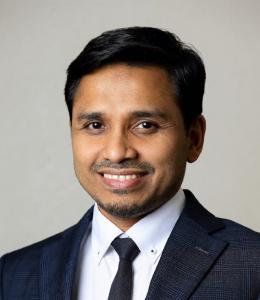
Dr Nazirudin Nasir
Home Institution: Islamic Religious Council of Singapore, Singapore University of Social Sciences
IASH-Alwaleed Research Fellow, June - July 2022
Nazirudin Nasir completed his doctorate in the comparative study of religion at the University of Oxford in 2015. His thesis examined the interrelationships between Judaism, Christianity, and Islam, and the emergence of the idea of the ‘Abrahamic religions’ in the thought of French Islamicist Louis Massignon. Nazirudin was trained as a cleric at the Al-Azhar University in Cairo and currently serves as the Mufti of Singapore, the religious head of the Muslim community. In the field of applied Islamic thought, he leads in the policy conceptualisation and implemention of Islamic law, theology and ethics. He is involved in inter-religious engagements and teaches world religions and ethics at the Singapore University of Social Sciences.
Project: Maslaha as Policy Imperative in Fatwas during the Covid-19 Pandemic
In my brief stint as IASH-Alwaleed Research Fellow, I will reflect on selected fatwas issued by religious authorities during the Covid-19 pandemic and examine the place of maslaha as public interest in these fatwas. My aim is to show that the pandemic, with its unprecedented set of challenges and consequences, presents new opportunities in envisioning a more dynamic and progressive Shari’a founded on the principle of maslaha as the basis for ethical and legal thought.
Yet, the tendency to restrict maslaha to dharura (necessity/emergency) and to the strictures of classical jurisprudence (usul al-fiqh) meant that such fatwas, whilst helpful at the time of crisis, perpetuate a restrictive view of the Shari’a that may impede efforts to deal with other urgent and complex challenges, now and in the future. I will highlight some exceptions and make a case for new possibilities in interpreting Islam (its theology, laws and ethics) that can permit a more constructive engagement with contemporary issues. This research is part of what I hope to be a larger project to study how Muslim societies, through highly competent and skilled institutions and authorities, could respond to complex and multi-faceted contemporary challenges that lie outside the boundaries of scripture and the classical tradition through creative and critical thinking unleashed by fresh interpretations of principles such as maslaha and the maqasid.
